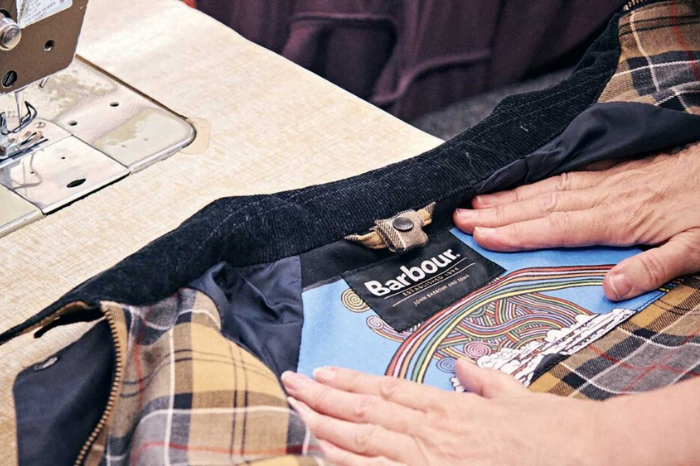Barbour posts profit increase despite revenue decline
Heritage outerwear brand Barbour has reported a significant increase in profits for the year ending 30 April 2024, despite facing a decline in turnover and revenue.
The company’s gross profit rose by £5.4 million to £39.6 million, even as revenue dropped by £21.3 million, a 6.2% decline, bringing turnover down to £321.8 million from £343 million the previous year.
Barbour attributed the revenue dip to a “challenging” wholesale market and rising costs but emphasised confidence in the “continued strength and resilience” of the company amid complex market conditions.
The increase in profits was largely driven by effective cost-saving measures and favourable foreign exchange rates. Barbour’s post-tax profit reached £34.3 million, a figure the company described as reflective of its “financial resilience.”
Never Miss a Retail Update!Group managing director Steve Buck stated: “Twelve months ago, we anticipated that global markets would be very challenging and made the decision to focus on high-quality, profitable sales. This strategy has worked very well in generating strong demand for the brand with increased efficiency and profits. This approach is very much in line with the long-term view taken by the business.”
Barbour continues to pursue a cautious but ambitious growth strategy, including plans to expand its commercial reach and selectively develop new product categories. The company highlighted the Asia-Pacific (APAC) region as a key market for international growth. To support increasing demand, Barbour opened a fulfilment centre in Singapore during the year, improving its service capabilities in the area.
The European Economic Area (EEA) also remains a priority market, though Brexit has presented operational challenges. Barbour stated it would continue to review its structure and operating model to strengthen its position in the region.
Barbour reiterated its commitment to its long-term strategy of being recognised as a trusted British global lifestyle brand. The company remains focused on its core values, including sustainable recovery and growth, while balancing profitability with its heritage and ethical principles.
While global demand for Barbour’s products has remained strong, the UK wholesale market faced a general retraction due to several major retail and e-commerce closures. The company worked closely with wholesale partners to prioritise profitable sales, a strategy it says has laid the foundation for future growth.
Buck added: “While demand for our brands has remained strong, there has been a general retraction in the UK wholesale market. We have worked closely with all of our wholesale partners to focus on building quality, profitable sales during this time. This strategy has also set the brand up very well for future growth, which we are already beginning to see.”
Despite a challenging retail environment, Barbour remains optimistic about its ability to deliver sustainable growth. The company plans to maintain its focus on profitable sales, invest in strategic international markets and continue its long-term commitment to quality and heritage.













